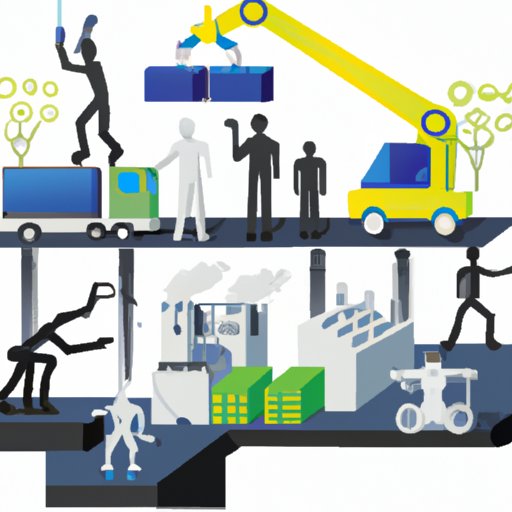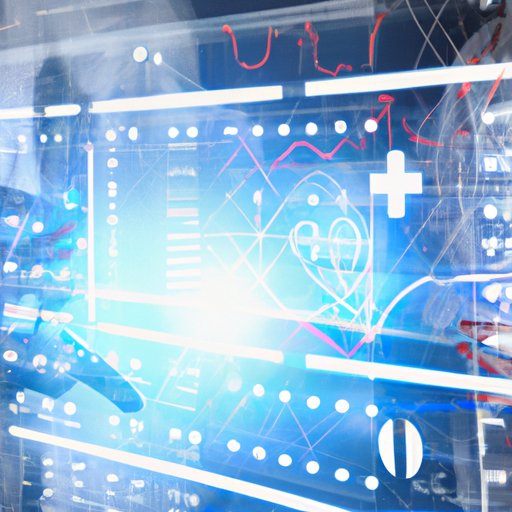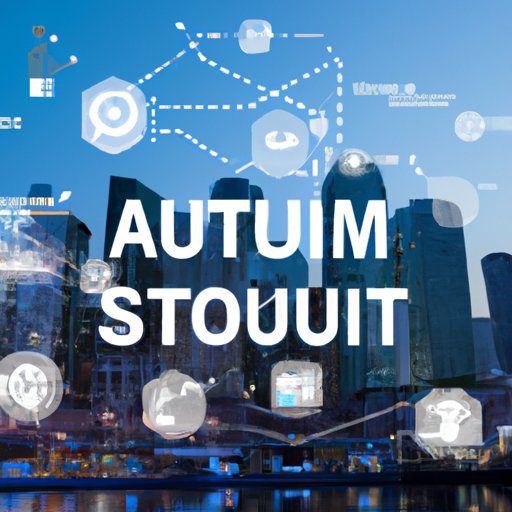Introduction
Artificial Intelligence (AI) is a powerful tool that has the potential to positively impact humanity in many ways. From automating mundane and hazardous tasks to improving healthcare outcomes and enhancing safety for workers in dangerous environments, AI can be used to make life easier and safer for people around the world. In this article, we will explore how AI can help humanity by examining how it can be used to automate tasks, improve healthcare, streamline customer service experiences, facilitate access to education, and create smarter cities.

Automation of Menial and Hazardous Tasks
AI can be used to automate menial and hazardous tasks that are often too tedious or dangerous for humans to undertake. For example, AI can be used to identify objects in an image or video, such as vehicles on a roadway or faces in a crowd. This can be used to automate tasks such as traffic control, surveillance, and facial recognition. AI can also be used to automate manufacturing processes, such as the assembly of circuit boards or the welding of metal parts. These automated processes can save businesses time and money, while eliminating the need for humans to perform potentially hazardous tasks.
The benefits of automation extend beyond businesses. Automated processes can also help individuals save time and energy. For instance, AI-powered chatbots can provide customers with quick and accurate responses to their inquiries, reducing the need for them to wait for a human customer service representative. Similarly, AI-powered virtual assistants can help individuals manage their daily tasks, such as scheduling appointments or making purchases, freeing up more time for leisure activities.

Improved Healthcare Through Data Analysis
AI can also be used to improve healthcare outcomes by analyzing large amounts of medical data. For example, AI can be used to identify patterns and correlations in patient data that may reveal new insights into diseases, treatments, and prevention methods. AI can also be used to accurately diagnose illnesses based on symptoms or test results, which can help doctors make more informed decisions about a patient’s health. Additionally, AI can be used to detect anomalies in medical images such as X-rays or CT scans, allowing doctors to identify and treat potential problems before they become serious.
The benefits of using AI in healthcare are numerous. AI can help doctors improve diagnosis accuracy, reduce treatment times, and lower costs. Additionally, AI-powered tools can help researchers develop new drugs and treatments faster. Overall, AI has the potential to revolutionize healthcare and improve the lives of millions of people around the world.
Streamlined Customer Service Experiences
AI can also be used to streamline customer service experiences. For example, AI-powered chatbots can provide customers with quick and accurate answers to their inquiries, eliminating the need for them to wait for a human customer service representative. Additionally, AI-powered virtual assistants can help customers navigate websites, find relevant information, and complete transactions quickly and easily.
The benefits of using AI for customer service are numerous. AI can help businesses reduce customer service costs and increase customer satisfaction by providing quicker response times and more accurate answers. Additionally, AI-powered tools can help customers find what they need faster, resulting in a better overall experience.

Enhanced Safety for Workers in Dangerous Environments
AI can also be used to enhance safety for workers in hazardous environments. For example, AI-powered robots can be used to inspect hazardous areas such as nuclear power plants or oil rigs, eliminating the need for humans to enter these dangerous locations. Additionally, AI-powered drones can be used to monitor construction sites and other outdoor areas, helping to ensure the safety of workers in these locations.
The benefits of using AI to monitor worker safety are numerous. AI can help businesses ensure that their employees are safe by providing real-time monitoring of hazardous areas. Additionally, AI-powered robots and drones can reduce the risk of injuries by performing dangerous tasks in place of humans. Overall, AI can help businesses keep their workers safe while reducing the cost of workplace accidents.
Facilitating Access to Education Through Online Tutoring
AI can also be used to facilitate access to education by providing online tutoring services. For example, AI-powered virtual tutors can be used to provide personalized instruction to students, enabling them to learn at their own pace. Additionally, AI-powered applications can provide students with instant feedback on their work, helping them identify areas for improvement.
The benefits of using AI for online tutoring are numerous. AI can help students learn faster and more effectively, while providing them with personalized instruction tailored to their individual needs. Additionally, AI-powered applications can provide students with immediate feedback, helping them identify areas for improvement and stay motivated.
Transforming How We Interact With Our Environment Through Smart Cities
Finally, AI can be used to transform how we interact with our environment by creating “smart cities”. Smart cities use AI-powered sensors and systems to collect and analyze data about their environment, such as air quality, traffic patterns, and energy usage. This data can then be used to optimize city services, such as public transit, waste management, and energy efficiency, resulting in a more sustainable and livable environment for citizens.
The benefits of using AI to create smart cities are numerous. AI can help cities reduce emissions and conserve resources, while providing citizens with improved public services and enhanced safety. Additionally, AI-powered applications can help cities identify areas of improvement, enabling them to make more informed decisions about their infrastructure and services.
Conclusion
In conclusion, AI has the potential to positively impact humanity in many ways. From automating mundane and hazardous tasks to improving healthcare outcomes and facilitating access to education, AI can help make life easier, safer, and more efficient for people around the world. Additionally, AI can be used to create smarter cities, transforming how we interact with our environment and providing citizens with improved public services. As AI continues to evolve, its potential to positively impact humanity will continue to grow, making further research and development into AI essential.
(Note: Is this article not meeting your expectations? Do you have knowledge or insights to share? Unlock new opportunities and expand your reach by joining our authors team. Click Registration to join us and share your expertise with our readers.)
